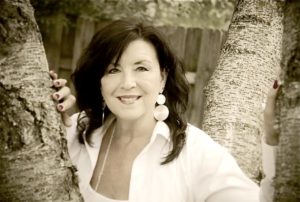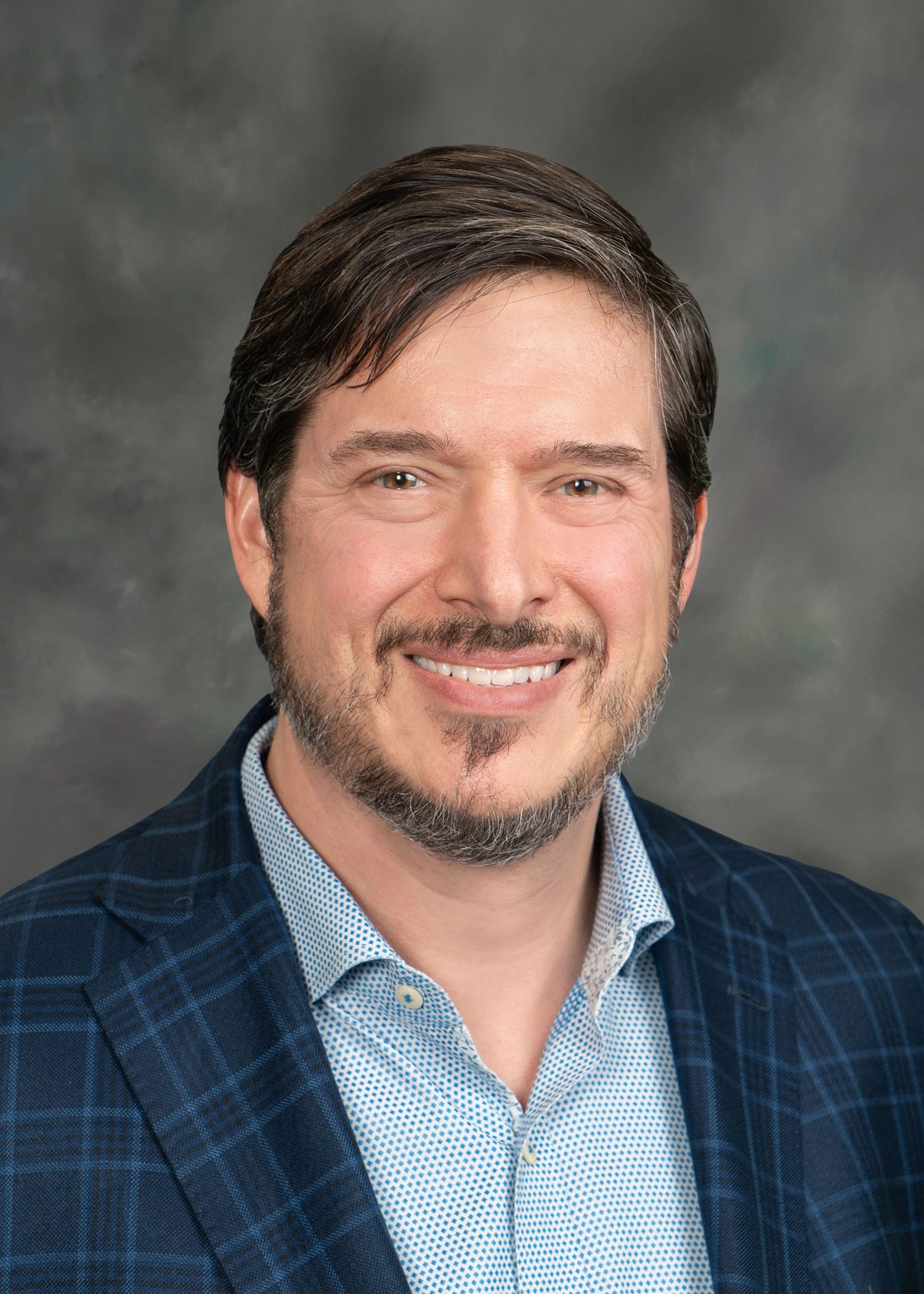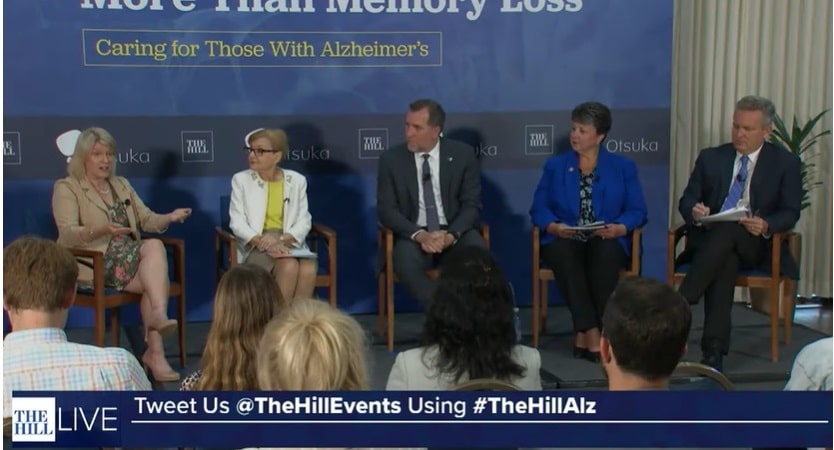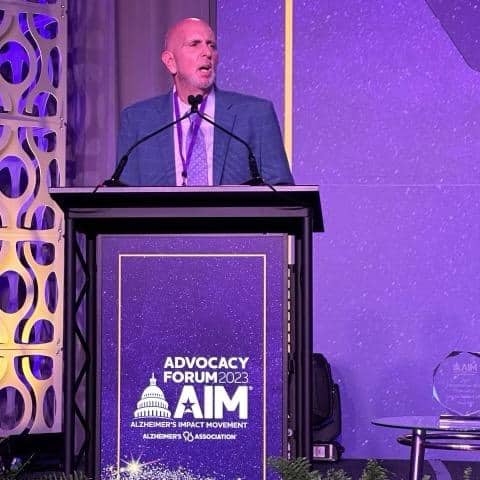
Patty Peterson, a participant of the Alliance’s Talk NERDY To Me program, reflects on what she learned from the program and the importance of patient advocacy:
Why did you decide to sign up for the Alliance’s Talk NERDY to Me program?
After my emergency aortic valve replacement and aortic repair in 2007 at Abbott Northwestern Hospital, when I received the St. Jude Heart Valve, I became a public speaker to talk about the right way and the wrong way to be diagnosed with heart valve disease. I joined forces with Amy Yasbeck and Dr. Dianna Milewicz of the John Ritter Foundation for Aortic Health. John Ritter was diagnosed improperly, and I was given the proper diagnosis. Therefore, speaking about having a plan in place was a key part of my talk. Although I was told I needed to have my aortic valve replaced, I wasn’t told my aorta was enlarging. I felt that significant information should have been told to me. I found out after the emergency surgery.
I was invited to speak at St Jude Medical’s 40th Anniversary celebration, and shortly thereafter, I was invited to tell my story to the FDA in Washington, D.C. to talk about what it is like to live with a mechanical heart valve. I was one of four people to share my experience. The invitation was through Heart Valve Voice. I was then invited to be on the Heart Valve Voice Advisory Board. That eventually led me to be invited to Talk NERDY To Me training.
What did you find to be most valuable about the TALK NERDY to Me program?
I recently turned 65 and have lived with aortic dissection and a mechanical heart valve for 13 years. At the Talk NERDY To Me training, I was encouraged to bring my experiences and thoughts on diagnosis and outcomes to help map out what is in the best interest of the older patient when it comes to heart valve issues, diagnosis, and follow-up care, including possible heart valve replacement.
There is also concern that some patients were not getting all of the information they needed at their appointments to make the most grounded decisions for their overall heart health, including valve health. For example, I was informed that my aortic valve would need replacing, but no one mentioned that my aorta was enlarging. This was most likely caused by the undiagnosed bicuspid aortic valve, which created the backwash, or insufficiency, with my valve.
Patients deserve to know all that is going on at the time of diagnosis. This helps ensure the best decision is made for each patient.
What does patient advocacy mean to you, and why do you believe it is important to be a patient advocate?
Patient advocacy simply means supporting the patient. When making decisions regarding one’s heart, it is imperative that all of the information be available at the time of those decisions. The last thing that a patient needs is an emergency situation, like I experienced, leaving the doctors to make the decisions for you to save your life. My life was saved, and because of that, I have become a spokesperson for aortic dissection and valve replacement. I am alive because of the correct diagnosis from the emergency room physician, and the quick action taken by emergency surgical team. My life was saved. I am forever grateful to Abbot Northwestern Hospital and Minneapolis Heart Institute physicians.
As a vocalist and a motivational speaker, I often am called upon to speak about aortic Issues, and overall heart health. I have chosen to learn about what patients need when discovering they are facing heart valve replacement and bring their stories into my speaking. Some will have marvelous stories about their diagnosis and care, and some stories will be the opposite. This will be an ongoing discovery on my part, as I reach out to people via social media platforms. I am currently compiling several people’s stories of heart valve replacement.
Why do you think others should sign up for the Talk NERDY To Me program?
I think the training was important because it proves that there are organizations that care about the patient’s overall health and keeping patients informed and supported.
We were given options through the web to find organizations or situations that spoke to us on how to become an advocate for patients. That included specific study groups and/or becoming part of or creating a support group.
What would you tell someone who has just been diagnosed with your condition?
I was diagnosed with heart valve disease in my late forties. Because I wasn’t given all the information regarding my aortic valve in my late forties, it eventually led to aortic dissection. I live with valve disease but with this new valve, they merely check it each year when they scan my entire aorta.
I want to implore patients to know whether or not their family member has ever had any valve issues. Share that information with your physician and ask for an echo to create a baseline. As you grow older, this will be very important for comparison. Also, if your relative has experienced an aortic dissection like I did, all first-degree relatives (parents, siblings, children) need to get scanned and then monitored in ensuing years.
If you are faced with heart valve replacement, make sure you are told all of the ways in which you can receive a heart valve in the year 2020. Transcatheter aortic valve replacement (TAVR) was not an option in 2005, when I was diagnosed with heart valve disease. A patient now has the option of TAVR or open-heart surgery to replace or repair a valve. Make sure you and your family know all of the information regarding your heart health and what options there are for you to consider. The patient can then make the most informed decision for their heart health.
Talk NERDY to Me is seeking advocates to participate in the 2020 research-advocacy training program designed to empower senior patients and their family caregivers to engage in patient-centered outcomes research (PCOR). Find out more here.






